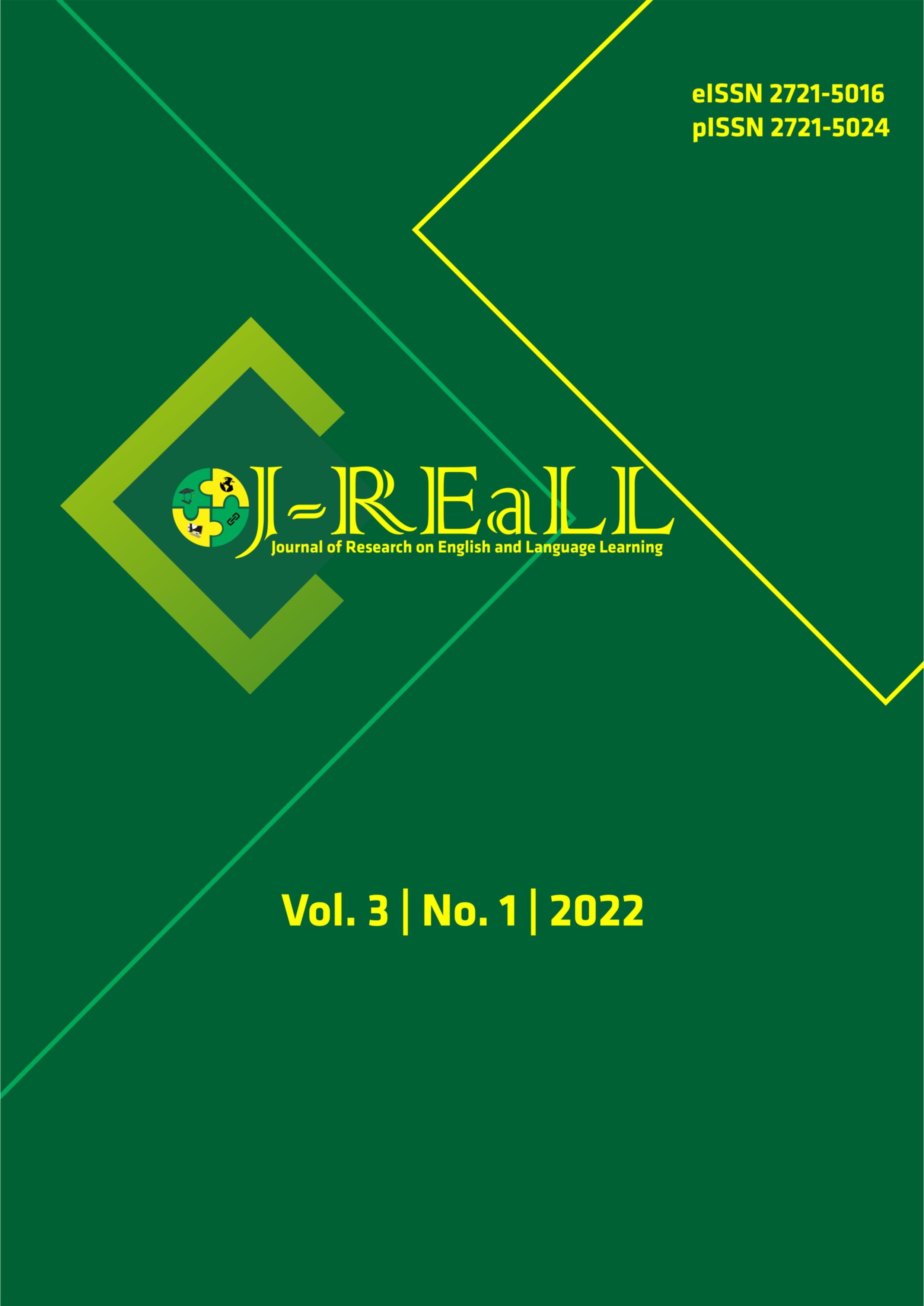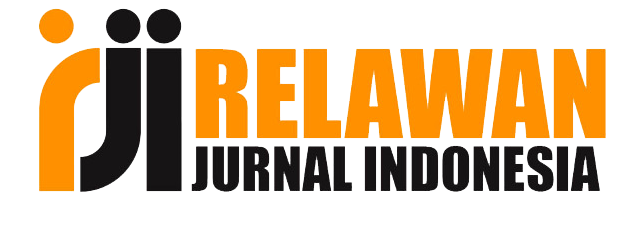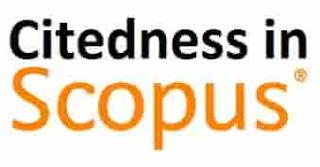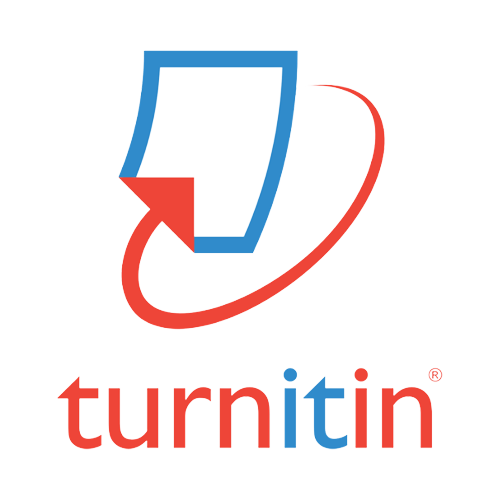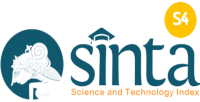Pedagogical content knowledge of English teacher on reading comprehension during pandemic covid-19 with online classes in senior high school
DOI:
https://doi.org/10.33474/j-reall.v3i1.11481Keywords:
PCK, pedagogical content knowledge, reading comprehensionAbstract
The research of Pedagogical Content Knowledge (PCK) uses a qualitative approach. The purpose of this research is to obtain the Pedagogical Content Knowledge (PCK) of prospective teachers of English Courses in terms of academic ability during the Covid-19 pandemic, as it is known that the pandemic has changed the structure of life that has been neatly arranged in this world. Data were analysed in the form of documents, observed, and interviewed with prospective English teachers on SMAN 15 SURABAYA. The technique of taking the data in this study was purposive sampling. The subjects in this study are teachers with more learning hours because in general they are categorized as professional teachers, then teachers with many teaching hours will be examined how the PCK is. The instruments in this study used CoRe and Vignette. The data analysis technique uses the Miles and Huberman model, namely data reduction, data presentation, and conclusions. Based on the results of the study, it shows that the pedagogical content knowledge of English teachers on reading comprehension during the pandemic still needs more creative and innovative adjustments, this is indicated by the number of teachers who are still hampered during learning hours.
References
Anita, Yuli, and Dias Andris Susanto. 2017. "The Teaching Analysis of Reading Comprehension: A Case of the Eight Grade Students of Smp Pgri 01 Semarang." ETERNAL (English Teaching Journal) 4(1).
Aydin, Sevgi et al. 2015. "The Nature and Development of Interaction among Components of Pedagogical Content Knowledge in Practicum." Teaching and Teacher Education 46: 37-50. http://dx.doi.org/10.1016/j.tate.2014.10.008.
Bakar, Ramli. 2018. "The Influence of Professional Teachers on Padang Vocational School Students' Achievement." Kasetsart Journal of Social Sciences 39(1): 67-72. https://doi.org/10.1016/j.kjss.2017.12.017.
Berry, Amanda, John Loughran, and Jan H. van Driel. 2008. "Revisiting the Roots of Pedagogical Content Knowledge." International Journal of Science Education 30(10): 1271-79.
Caccamise, Donna, and Lynn Snyder. 2005. "Theory and Pedagogical Practices of Text Comprehension." Topics in Language Disorders 25(1): 5-20.
Cutts, Quintin et al. 2012. "The Abstraction Transition Taxonomy: Developing Desired Learning Outcomes through the Lens of Situated Cognition." ICER '12 - Proceedings of the 9th Annual International Conference on International Computing Education Research: 63-70.
Falkner, Katrina, and Judy Sheard. 2019. The Cambridge Handbook of Computing Education Research Pedagogic Approaches.
Finney, John, and Chris Philpott. 2010. "Informal Learning and Meta-Pedagogy in Initial Teacher Education in England." British Journal of Music Education 27(1): 7-19.
Firmin, Michael W., and Annie Phillips. 2009. "A Qualitative Study of Families and Children Possessing Diagnoses of ADHD." Journal of Family Issues 30(9): 1155-74.
Garritz, Andoni. 2014. "Pedagogical Content Knowledge." Encyclopedia of Science Education: 1-4.
Gelfuso, Andrea. 2017. "Facilitating the Development of Preservice Teachers' Pedagogical Content Knowledge of Literacy and Agentic Identities: Examining a Teacher Educator' Intentional Language Choices during Video-Mediated Reflection." Teaching and Teacher Education 66: 33-46. http://dx.doi.org/10.1016/j.tate.2017.03.012.
Hempel-Jorgensen, Amelia, Teresa Cremin, Diane Harris, and Liz Chamberlain. 2018. "Pedagogy for Reading for Pleasure in Low Socio-Economic Primary Schools: Beyond '˜Pedagogy of Poverty'?" Literacy 52(2): 86-94.
Huber, Mary T., and Pat Hutchings. 2004. "Integrative Learning: Mapping the Terrain." Carnegie Foundation: 1-32.
JELLIFFE. 1908. "The Psychology and Pedagogy of Reading." The Journal of Nervous and Mental Disease 35(12): 797.
Loewenberg Ball, Deborah, Mark Hoover Thames, and Geoffrey Phelps. 2008. "Content Knowledge for Teaching: What Makes It Special?" Journal of Teacher Education 59(5): 389-407.
Longa, Víctor M. 2006. "The Handbook of Second Language Acquisition (Review)." The Canadian Journal of Linguistics / La revue canadienne de linguistique 51(1): 60-62.
Ma, Lihong, Haifeng Luo, and Leifeng Xiao. 2021. "Perceived Teacher Support, Self-Concept, Enjoyment and Achievement in Reading: A Multilevel Mediation Model Based on PISA 2018." Learning and Individual Differences 85(October 2020): 101947. https://doi.org/10.1016/j.lindif.2020.101947.
Mu, Guanglun Michael, Wei Liang, Litao Lu, and Dongfang Huang. 2018. "Building Pedagogical Content Knowledge within Professional Learning Communities: An Approach to Counteracting Regional Education Inequality." Teaching and Teacher Education 73: 24-34. https://doi.org/10.1016/j.tate.2018.03.006.
Nolan, Andrea, and Tebeje Molla. 2017. "Teacher Confidence and Professional Capital." Teaching and Teacher Education 62: 10-18.
Noula, Ioanna. 2018. "Critical Thinking and Challenges for Education for Democratic Citizenship: An Ethnographic Study in Primary Schools in Greece." Educacao and Realidade 43(3): 865-86.
Özgür, Hasan. 2020. "Relationships between Teachers' Technostress, Technological Pedagogical Content Knowledge (TPACK), School Support and Demographic Variables: A Structural Equation Modeling." Computers in Human Behavior 112(July).
Pendidikan, Menteri, D A N Kebudayaan, and Republik Indonesia. 2013. "Menteri Pendidikan Dan Kebudayaan Republik Indonesia." : 2013-15.
Reading, A. 2000. "Improving Students' Reading..., Bening Savita, FKIP UMP, 2015 8." : 8-27.
Sarkim, T. 2015. "Pedagogical Content Knowlegde: Sebuah Konstruk Untuk Memahami Kinerja Guru Di Dalam Pembelajaran." Prosiding Pertemuan Ilmiah HFI Jateng dan DIY XXIX 53(25 April): 7-12. https://repository.usd.ac.id/4429/1/2371_FULL-Makalah+Utama+II_+Pedagogical+Content+Knowlegde_+Sebuah.pdf.
Segall, Avner. 2004. "Revisiting Pedagogical Content Knowledge: The Pedagogy of Content/the Content of Pedagogy." Teaching and Teacher Education 20(5): 489-504.
Segundo Marcos, Rafael Ibán, Verónica López Ferández, María Teresa Daza González, and Jessica Phillips-Silver. 2020. "Promoting Childrens' Creative Thinking through Reading and Writing in a Cooperative Learning Classroom." Thinking Skills and Creativity 36(January): 100663. https://doi.org/10.1016/j.tsc.2020.100663.
Simon, Beth, and Quintin Cutts. 2012. "Education Peer Instruction: A Teaching Method to Foster Deep Understanding." Communications of the ACM 55(2): 27-29.
Suryanto. 2017. "An Investigation on English Reading Comprehension Problems in Indonesian Cultural Contexts." The 1st International Conference on Education, Science, Art and Technology (July): 200-205. https://ojs.unm.ac.id/icesat/article/download/3738/2135.
Uzmanoǧlu, Selçuk et al. 2010. "Evaluation of Educational and Technical Structure at Vocational Schools." Procedia - Social and Behavioral Sciences 2(2): 3447-51.
Downloads
Published
How to Cite
Issue
Section
License
Copyright (c) 2021 R. Much. Aditya Rafianto Kusuma

This work is licensed under a Creative Commons Attribution 4.0 International License.
Authors who publish this journal agree to the following terms:
- Authors retain copyright and grant the journal right of first publication with the work simultaneously licensed under a Creative Commons Attribution License that allows others to share the work with an acknowledgement of the work's authorship and initial publication in this journal.
- Authors can separately make additional contractual arrangements for non-exclusive distribution published by the journal (e.g., publish it in a book), with an acknowledgement of its initial publication in this journal.
- Authors are allowed and encouraged to send their work via online (e.g., in the institutional repositories or their website) after published by the journal.
